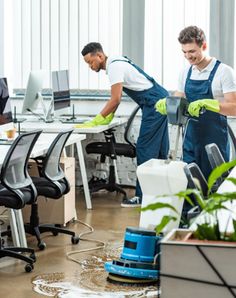Ever found yourself wondering “What do you actually call the person who keeps this office looking spotless?” You’re not alone. The short answer? They’re most commonly known as an office cleaner. But depending on their role, they might also be called a janitor, custodian, or even a commercial cleaner.
Quick Answer:
- Office Cleaner: Standard term.
- Janitor: Broader role (includes maintenance).
- Custodian: Focus on care and responsibility of a building.
- Commercial Cleaner: Professional cleaning across business types.
Each carries slightly different expectations depending on the setting. But if you’re chatting casually around the water cooler, “office cleaner” will do the trick 99% of the time.
Why Is the Role of an Office Cleaner So Important?
Imagine walking into a meeting room littered with yesterday’s coffee cups, dusty chairs, and bin liners sagging with takeaway containers. Not a great look, right? First impressions matter, and your office cleanliness says a lot about your business before a single word is spoken.
Office cleaning isn’t just about aesthetics. It’s about:
- Health and hygiene (goodbye, office sniffles).
- Boosting employee morale (no one loves a sticky desk).
- Impressing clients and visitors.
- Preventing pest problems (trust me, once you’ve had an ant invasion, you’ll never slack again).
Real talk: anyone who’s worked in a busy office knows how grimy things get by Friday afternoon. Office cleaners are the unsung heroes keeping things civilised.
Is There a Difference Between an Office Cleaner and a Janitor?
Technically, yes — though everyday usage often blurs the line.
- Office Cleaner: Usually cleans after hours, focuses purely on cleaning tasks like wiping desks, emptying bins, vacuuming carpets.
- Janitor: Might also handle minor repairs, security checks, or restocking supplies in addition to cleaning.
In Australia, you’ll hear “office cleaner” far more than “janitor” – the latter has a more American flavour to it. (Kind of like calling a “texta” a “marker” – same tool, different lingo.)
What Tasks Are Included in Professional Office Cleaning?
You might think it’s just about emptying bins and giving things a quick wipe-down. But professional office cleaning covers a lot more:
- Dusting desks, shelves, and electronics (safely, without wrecking keyboards).
- Sanitising shared spaces like kitchens and bathrooms.
- Vacuuming and mopping floors.
- Restocking bathroom supplies (toilet paper emergencies avoided).
- Rubbish removal and recycling sorting.
- Window and glass door cleaning.
- Sometimes deep cleaning like carpet steam cleans or disinfection services.
Fun fact: Studies show clean workplaces can boost productivity by up to 15% — according to Harvard Business Review.
Anyone who’s tried to DIY office cleaning after a full workday knows: it’s trickier than it sounds. That’s why commercial cleaners exist — to do it properly, efficiently, and with a whole lot less grumbling.
How Often Should Office Cleaning Be Scheduled?
It depends on how busy the office is (and how messy your coworkers are, honestly).
Typical cleaning schedules include:
- Daily: High-traffic offices, medical offices, retail front desks.
- Twice-weekly: Medium-sized businesses with moderate traffic.
- Weekly: Small offices, boutique agencies, remote/hybrid setups.
In some cases, businesses mix schedules: daily common area cleaning with deeper cleans every Friday. Smart, right?
Real-world tip: Consistency beats deep spring cleans every time. A regular light touch keeps problems from building up into costly disasters (like that weird mould patch no one notices until it’s a crisis).
What Makes a Great Office Cleaner?
There’s cleaning, and then there’s proper cleaning. A great office cleaner brings more than a mop to the table:
- Attention to detail: Notices the fingerprint smudges no one else does.
- Reliability: Shows up rain, hail, or shine.
- Discretion: Respects sensitive documents and spaces.
- Communication: Flags maintenance issues or hazards early.
- Pride in work: Leaves the place sparkling, not just “good enough”.
One of my old workplaces had a cleaner named Tony. Tony became a legend. If a window squeaked or a light flickered, Tony knew before you even noticed. That kind of care makes a difference you can feel — even if you can’t always put your finger on why the office just feels better.
FAQs About Office Cleaning
What’s the difference between office cleaning and commercial cleaning?
Office cleaning is a type of commercial cleaning specifically focused on offices. Commercial cleaning can also cover places like gyms, schools, and warehouses.
Do office cleaners bring their own supplies?
Most professional office cleaners bring all necessary equipment and eco-friendly products. Some businesses request cleaners use specific products, especially in allergy-sensitive environments.
Can office cleaners work during business hours?
Yes, though after-hours cleaning is more common. Some businesses, like coworking spaces, prefer daytime cleaning for quicker issue response.
Conclusion: Why Office Cleaning Matters More Than You Think
At the end of the day, office cleaning isn’t just a service — it’s a subtle but powerful investment in your team’s health, happiness, and pride in their workplace. Whether you call them a cleaner, custodian, or commercial cleaning professional, they’re key players in keeping the wheels turning smoothly behind the scenes.
For those considering more professional services, understanding how commercial cleaning impacts both day-to-day operations and overall company culture is eye-opening. You can learn more about commercial cleaning services that support thriving workplaces.

